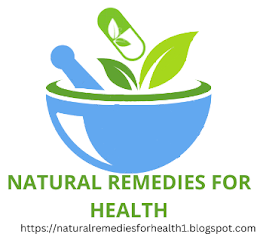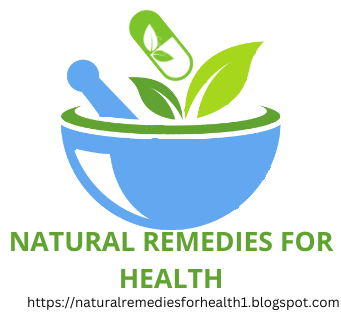Table of Contents
- Understanding High Blood Pressure
- The Dangers of Untreated Hypertension
- Lifestyle Modifications for Blood Pressure Control
- Dietary Changes to Lower Blood Pressure
- Regular Exercise and Physical Activity
- Stress Reduction Techniques
- Adequate Sleep and Rest
- Herbal Supplements for Blood Pressure Management
- Limiting Alcohol and Caffeine Intake
- Quit Smoking for Better Blood Pressure Control
- Monitoring Blood Pressure at Home
- The Importance of Regular Check-ups
- Managing Weight for Blood Pressure Control
- Supportive Therapies for Hypertension
- Conclusion
1. Understanding High Blood Pressure
In this section, we will explain what high blood pressure is, its causes, and how it affects the body. We will delve into the different stages of hypertension and the associated risks.
2. The Dangers of Untreated Hypertension
Untreated high blood pressure can lead to severe health complications such as heart disease, stroke, and kidney damage. This section will shed light on the potential dangers and long-term consequences of ignoring high blood pressure.
3. Lifestyle Modifications for Blood Pressure Control
Here, we will discuss various lifestyle modifications that can effectively manage high blood pressure. Topics covered will include maintaining a healthy diet, reducing sodium intake, and managing stress levels.
4. Dietary Changes to Lower Blood Pressure
In this section, we will provide an overview of the DASH (Dietary Approaches to Stop Hypertension) diet, which is specifically designed to help lower blood pressure. We will outline the recommended foods and nutrients to incorporate into your diet.
5. Regular Exercise and Physical Activity
Regular physical activity plays a crucial role in managing blood pressure. We will explore different types of exercises that can help reduce hypertension and improve overall cardiovascular health.
6. Stress Reduction Techniques
Chronic stress can contribute to high blood pressure. In this section, we will discuss various stress reduction techniques, including meditation, deep breathing exercises, and mindfulness practices.
7. Adequate Sleep and Rest
Sleep deprivation and poor sleep quality can affect blood pressure levels. We will highlight the importance of getting enough sleep and provide tips for improving sleep hygiene.
8. Herbal Supplements for Blood Pressure Management
Certain herbs and supplements have shown promising results in reducing blood pressure. This section will cover popular natural remedies such as garlic, hawthorn, and fish oil.
9. Limiting Alcohol and Caffeine Intake
Excessive alcohol consumption and high caffeine intake can elevate blood pressure. We will explain the recommended limits for alcohol and caffeine consumption and provide alternatives to consider.
10. Quit Smoking for Better Blood Pressure Control
Smoking damages blood vessels and increases the risk of developing hypertension. Here, we will discuss the benefits of quitting smoking and provide strategies to overcome nicotine addiction.
11. Monitoring Blood Pressure at Home
Regular monitoring of blood pressure at home can help individuals with hypertension stay informed about their condition. We will explain how to measure blood pressure accurately and provide guidance on interpreting the readings.
12. The Importance of Regular Check-ups
Regular medical check-ups are essential for individuals with high blood pressure. This section will emphasize the importance of monitoring blood pressure and seeking professional advice to ensure effective management.
13. Managing Weight for Blood Pressure Control
Maintaining a healthy weight is crucial for managing high blood pressure. We will discuss the relationship between weight and hypertension and provide tips for achieving and maintaining a healthy body weight.
14. Supportive Therapies for Hypertension
In addition to lifestyle changes, certain alternative therapies can complement conventional treatments for high blood pressure. This section will explore techniques such as acupuncture, yoga, and aromatherapy.
15. Conclusion
To conclude the article, we will summarize the key points discussed and emphasize the importance of incorporating natural remedies into your lifestyle to effectively manage high blood pressure.
FAQs (Frequently Asked Questions)
-
Can natural remedies completely replace medication for high blood pressure?
While natural remedies can be beneficial in managing blood pressure, it is essential to consult with a healthcare professional before making any changes to your medication regimen. They can provide personalized advice based on your specific condition.
-
How long does it take for natural remedies to lower blood pressure?
The time it takes for natural remedies to lower blood pressure varies from person to person. It is important to be consistent with lifestyle modifications and allow sufficient time for the body to adapt and respond to the changes.
-
Are there any side effects associated with herbal supplements for blood pressure?
Although herbal supplements are generally considered safe, they can interact with certain medications and may cause side effects in some individuals. It is advisable to consult with a healthcare provider before incorporating them into your routine.
-
Can stress reduction techniques alone lower blood pressure?
Stress reduction techniques can help lower blood pressure; however, they are most effective when combined with other lifestyle changes such as a healthy diet and regular exercise.
-
Is it possible to reverse high blood pressure naturally?
While high blood pressure can often be managed effectively through natural remedies and lifestyle modifications, it is important to understand that each individual's response may vary. It is crucial to work closely with a healthcare professional to monitor and control your blood pressure levels effectively.


















